Ketamine Therapy For Addiction
It’s About Tuning In - Not Checking out
Greetings. I often receive inquiries from both individuals in recovery and professionals involved in substance use treatment, all wondering about the safety of administering Ketamine to those in recovery. The answer is yes, it is safe when used in the proper clinical setting.
Allow me to elaborate. While it's not a guarantee of absolute safety, with appropriate support and within a healing framework, the risk of developing a problem with Ketamine is about 1%. Globally, Ketamine is recognized as one of the top 10 drugs, it’s widespread use as an anesthetic attests to its safety profile. Although Ketamine is sometimes misused as a club drug, it doesn't have the same profile of biological dependence as other addictive substances.
Viewed as a mental health treatment, Ketamine can be likened to receiving essential pain medication. When used in the right setting, pain medications are beneficial with minimal risks. However, in the wrong context, they can be harmful. Often, those seeking recovery are prone to relapse due to the very issues Ketamine may help resolve such as underlying trauma or other mental health disorders. Each client will be assisted in weighing the pros and cons of including Ketamine Assisted Psychotherapy as part of their recovery plan.
Interested clients undergo a thorough clinical and medical assessment, and preparation sessions are crafted to establish a healing context. The goal is to utilize the medicine as a tool for accessing one's higher self, rather than as a means of altering mood or escaping. Approaching it with the latter mindset may lead to unfavorable experiences, as Ketamine and other psychedelics amplify internal experiences rather than providing an escape. In short, Ketamine is used to help clients tune in, not check out.
Additionally, treatment is finite and never continuous. The average number of medicine sessions is six, with occasional booster sessions as needed. The understanding is that the medicine serves as a tool to facilitate healing, reducing reactivity, overthinking, hypervigilance, worry, rumination, and other challenging experiences tied to the ego, allowing clients to regain their footing.
With experience providing Ketamine Assisted Psychotherapy since 2019, I am well-equipped to guide you through this journey. Should you have any questions or concerns, I warmly invite you to schedule a free 15-minute consultation by clicking the button below, which is directly linked to my calendar.
-Charlie Shockley, LCSW
Why Ketamine Therapy (KAP)?
Ketamine has a long history of safe use as an anesthetic, and its new “breakthrough” potential to resolve treatment-resistant depression has created quite a buzz. Ketamine induces a non-ordinary state of consciousness, or psychedelic effect, which can be a powerful, potentially life-changing experience. This experience is the focus of Charlie’s approach to psychotherapy services while the medical aspect is managed by local prescribers.
A key feature of psychedelic medicine is its ability to temporarily shut down the Default Mode Network (your ego) so that you can experience reality without your typical filter. What we understand is the story you manufacture about who you are and how you relate to the world can become too rigid in treatment-resistant disorders and may color your reality in negative ways. Ketamine has the potential to help you step outside of beliefs that no longer serve you. It’s a big shift and one that has the potential to help you change your perceptions and thus change your reality.
This sounds wonderful, and it can be. In a recent clinical trial with cancer patients, using a similar medication, greater than 80% of participants reported “moderately or greater increased well-being/life satisfaction.” (Griffiths, et al. 2016) This study was the beginning of the current research renaissance into psychedelics and the data continues to confirm benefits. What’s important to note is that these outcomes quantify a combination of medication and psychotherapy. Though the medicine itself can have restorative impacts on the brain, the ego-based narratives that a Ketamine treatment may expose often require psychotherapy to fully resolve.
Many clients have felt trapped for years or even a lifetime by negative beliefs such as “I’m unlovable, a disappointment, a failure, it’s hopeless, or the world is a bad place.” Many report that Ketamine is able to essentially dissolve these stories for a time, but they may have a tendency to return depending on multiple biological, social, and psychological variables. That’s why it’s important to support this Ketamine-produced window of insight with cognitive and behavioral change in order to truly integrate the experience into your psyche.
In addition, Ketamine is a non-specific amplifier of internal experiences be they cognitive, emotional, or somatic. The client does not get to choose what gets amplified and what doesn’t. Those who have a strong resistance to internal experiences may try to fight the medicine in order to retain a sense of control. Opening the door on repressed feelings can be uncomfortable and a trained counselor’s job is to make the process much less challenging.
Charlie offers a clinical assessment, treatment planning, preparation and integration therapy. They want to assure your journey is transformational, long-term, and the opportunity to heal that you’ve been waiting for.

